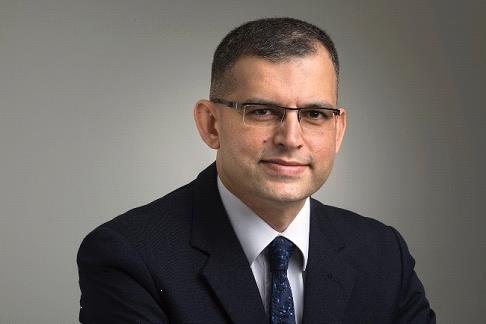| |
Dr. Harish Pillai,CEOAster Hospitals & ClinicsIndia
 The World Health Organization, popularly referred to as
the WHO will be celebrating its 70th anniversary this year. Each year, the
anniversary of the founding on 7th April 1948 is commemorated as World Health
Day. The founding principles of the WHO included the fundamental right to the
highest attainable standard of health for every human being without distinction
of race, religion, political belief, economic or social condition, and on the
momentous occasion of its 70th anniversary, WHO has gone back to its founding
principles of ‘Health for All’.
With this in mind, World Health Day this year is focussing on ‘Universal Health
Coverage for Everyone, Everywhere’. This coincides with what is turning out to
be a historic year for India, with the Union Government announcing the launch of
the World’s largest Universal Health Coverage program - Ayushman Bharat, which
is expected to be rolled out later this year. It is heartening to see health
taking center stage as the country moves ahead on the road to economic prosperity and a framework being set up for achievement in the Constitution of India.
The Constitution of India which guarantees the right to life and personal
liberty under Article 21, also expands on this in the directive principles of
state policy. Among other safeguards, Article 39 directs the state to secure the
health and strength of workers, men and women and calls upon the state to ensure
that children are given opportunities and facilities to develop in a healthy
manner. Article 41 puts the onus on the state to offer public assistance in
cases of sickness and disablement, and in other cases of undeserved want.
Article 42 it’s a primary responsibility of the state to protect the health of
infant and mother through maternity benefits. Article 47 calls upon the state to
raise the level of nutrition and the standard of living and to improve public
health.
Ayushman Bharat will provide the much needed safety net to large amount of our
citizens who would otherwise have no access to quality healthcare. The
empowerment of our citizens through this Universal Health Insurance Scheme will
bring in principles of equity to the common man and go a long way to improve
overall national health indicators. It is expected to reduce the incidents of
acute poverty on account of unplanned and unanticipated medical emergencies and
also bring in economic benefits to the society in the long term.
The state of Kerala has always been a role model for the rest of the country in
terms of the quality of healthcare delivery system and its accessibility to the
common man. For example, Kerala is the only Indian state with a palliative care policy and a community-based Neighbourhood Network in Palliative Care (NNPC) .
This World Health day reinforces the efforts of the State Government and all
stake holders to ensure the principle of Equity, for Accessibility,
Affordability and Assurance with the theme ‘Health for All’.
|


